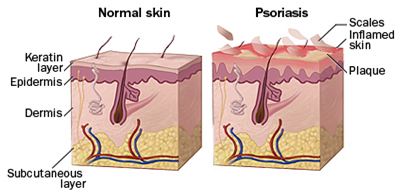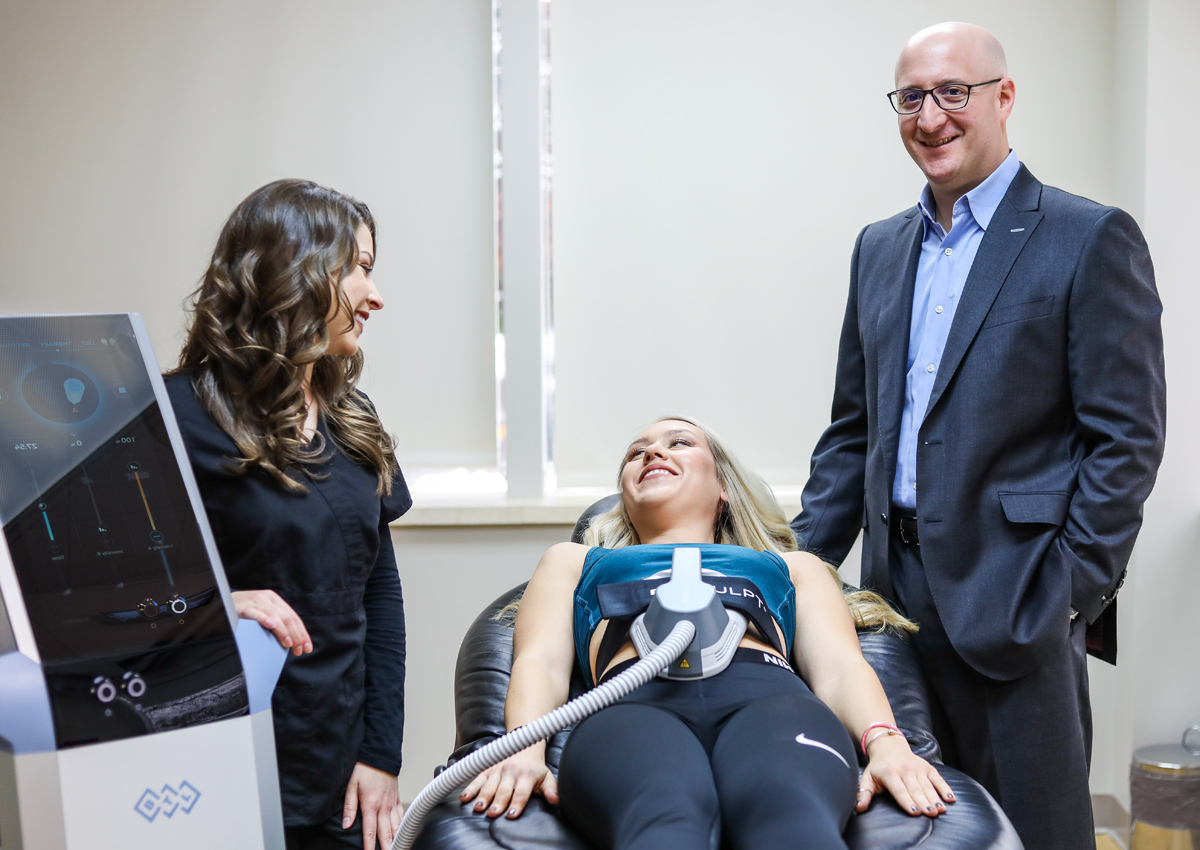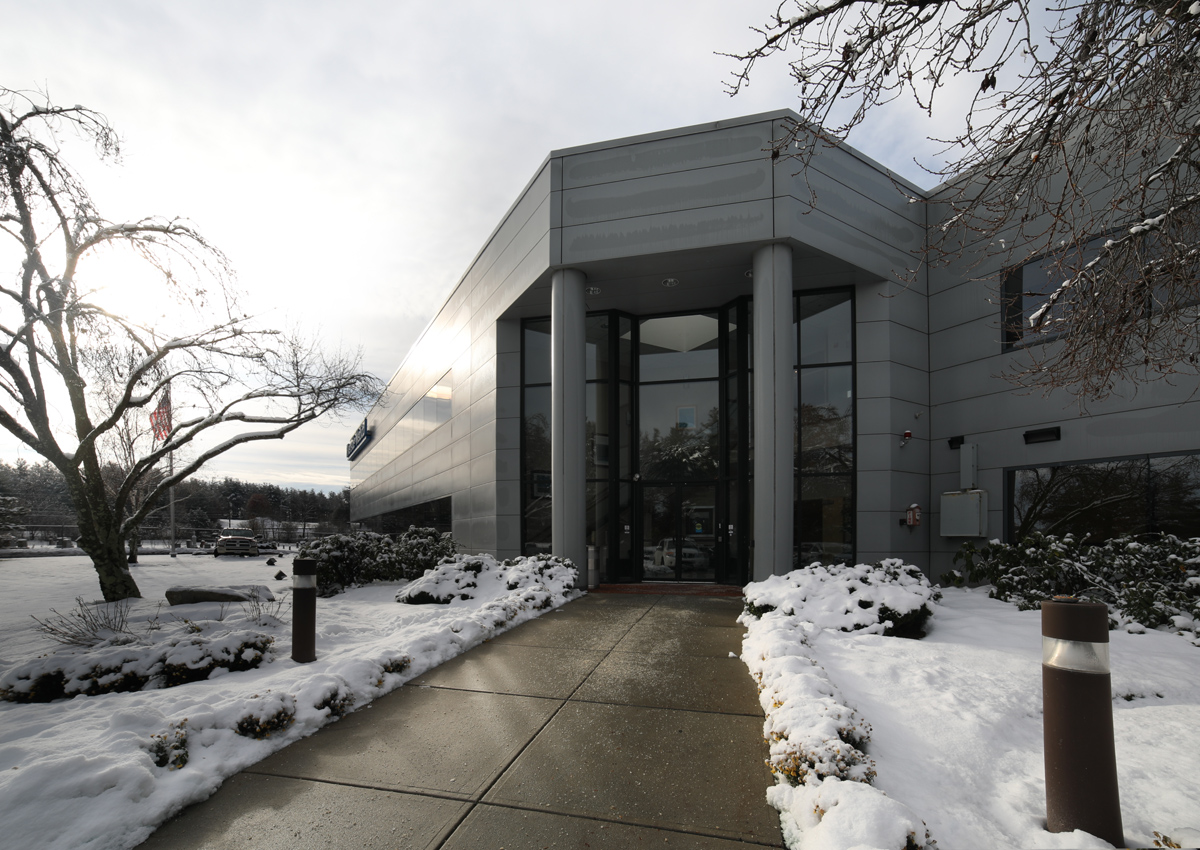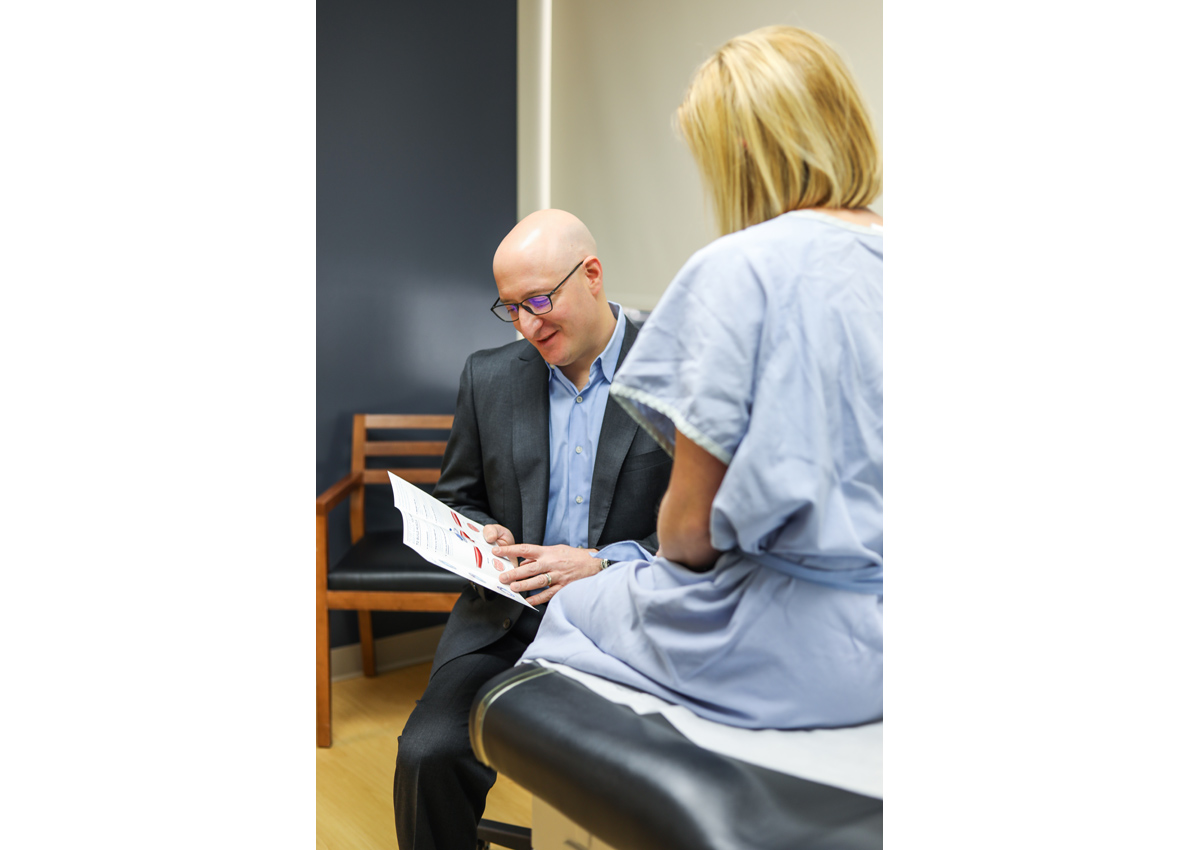Psoriasis
Conveniently located to serve Nashua, NH
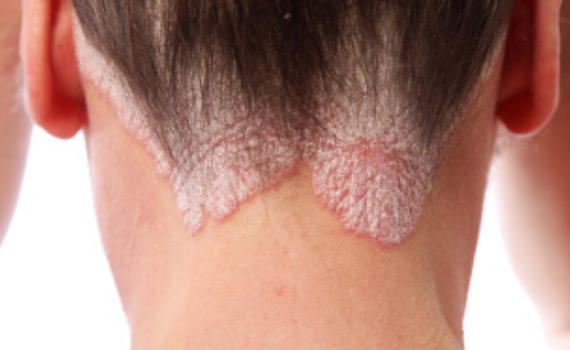
Psoriasis Signs and Symptoms
Psoriasis typically presents as red patches on the body with silvery scales. There may be cracked or dry skin that may itch or bleed. There may also be a feeling of burning or soreness. They are commonly found on the elbows, knees, or scalp, though it can appear on any location. Some people report that psoriasis is itchy, burns, and stings. Psoriasis can sometimes cause mild to severe joint pain in a condition known as Psoriatic Arthritis. Psoriasis commonly occurs in cycles. There may be a flare of psoriasis that lasts for several weeks or months followed by periods of remission.The Different Types of Psoriasis
- There are several different types of psoriasis that can cause a variety of different symptoms and issues.
- Plaque psoriasis – Causes patches of raised red and dry skin to form. These patches have silvery scales over them and may be tender and itchy. The most common type of psoriasis.
- Guttate psoriasis – Common in children and young adults. typically triggered by a bacterial infection. Can cause small scaled lesions to form on the legs and arms.
- Nail psoriasis – Can affect both fingernails and toenails. Nail psoriasis can cause abnormal growth and discoloration as well as pitting. the nail may also loosen from the nail bed or become very fragile.
- Erythrodermic psoriasis – An uncommon form of psoriasis that can cover the whole body. Causes a red rash that can burn and itch. Peeling is also common.
- Inverse psoriasis – Commonly affects areas like the breasts, groin, and buttocks where the skin folds. causes smooth red patches of irritated skin to form around the area.
Schedule a Consultation
If you are suffering from psoriasis, our team at Waldman Plastic Surgery can provide you with the care you need. We offer several treatments for psoriasis that can provide you with long-term relief. Our team can take the time to find the treatment that is most effective for you.Thank you for taking such good care of me both physically and emotionally
Thank you for taking such good care of me both physically and emotionally. You are a good friend.MW
Psoriasis Treatment Q & A
-
What is psoriasis?
Psoriasis is a chronic autoimmune disease that develops when the immune system sends faulty signals that instruct skin cells to grow too rapidly. These fast-growing skin cells can form in a matter in days rather than weeks. When a patient with Psoriasis does not shed these excess cells, they pile up on the top surface of the skin, and manifest as the red, scaly patches characteristic of Psoriasis. It is a genetic condition and cannot be caught through physical contact. There is a type of Psoriasis called Guttate Psoriasis that can result from a Strep infection.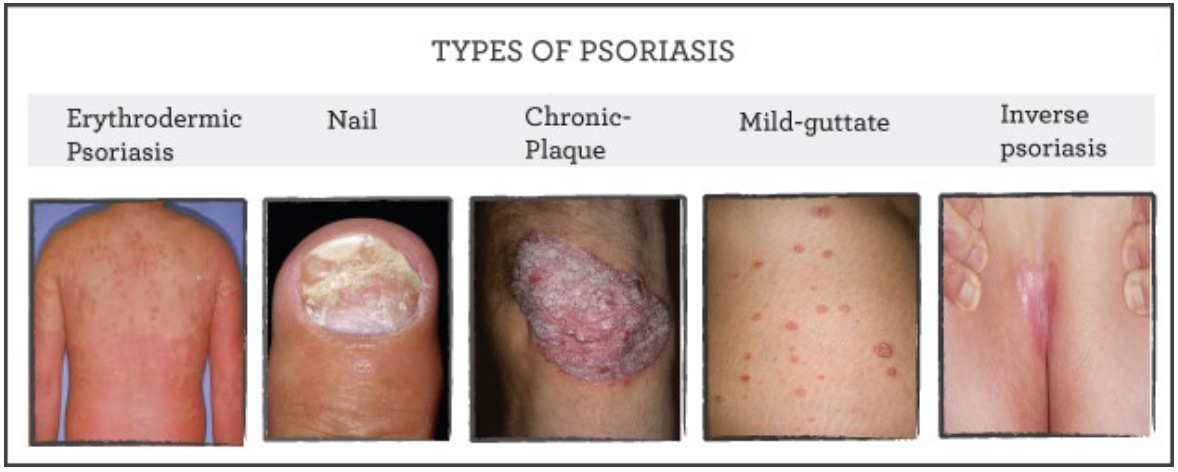
-
What are the diverse types of Psoriasis?
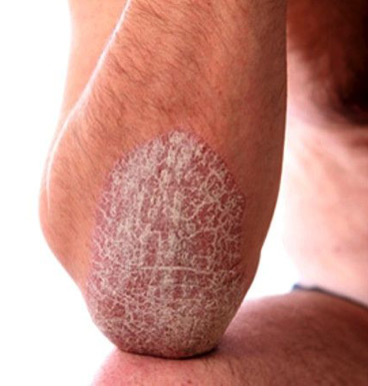 Plaque (psoriasis vulgaris)— This Psoriasis results in raised, red, scaly patches on the skin. The plaques are often found on elbows, knees, scalp and gluteal cleft though they can cover very large areas of the body.
Plaque (psoriasis vulgaris)— This Psoriasis results in raised, red, scaly patches on the skin. The plaques are often found on elbows, knees, scalp and gluteal cleft though they can cover very large areas of the body.
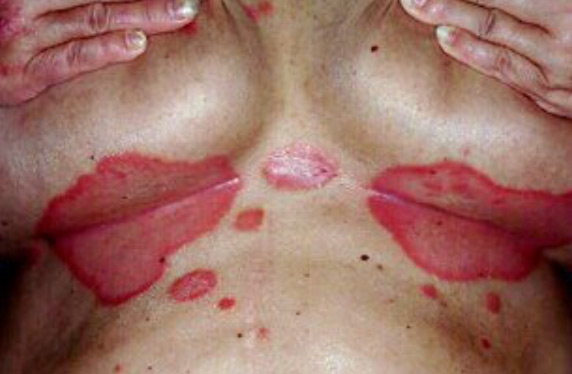 Inverse — Scaly plaques develop in the folds of a patient’s skin in areas such as under the breasts, buttocks, and groin creases and the axillae. Due to heat and skin friction in these areas, the scales tend to fall off, leaving a smooth red area that has the appearance of scalded skin.
Inverse — Scaly plaques develop in the folds of a patient’s skin in areas such as under the breasts, buttocks, and groin creases and the axillae. Due to heat and skin friction in these areas, the scales tend to fall off, leaving a smooth red area that has the appearance of scalded skin.
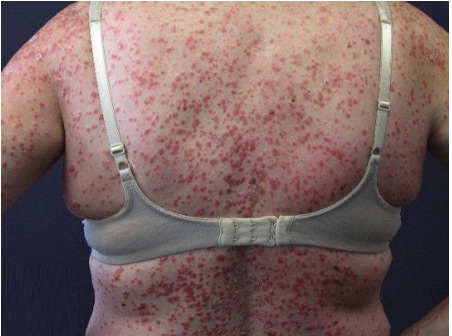 Guttate — More common among young adults and children, guttate psoriasis usually occurs with a sudden onset. This occurs most often after a streptococcal pharyngitis infection and appears as drop-like lesions. This can sometime resolve spontaneously but may later result in the development of plaque psoriasis.
Guttate — More common among young adults and children, guttate psoriasis usually occurs with a sudden onset. This occurs most often after a streptococcal pharyngitis infection and appears as drop-like lesions. This can sometime resolve spontaneously but may later result in the development of plaque psoriasis.
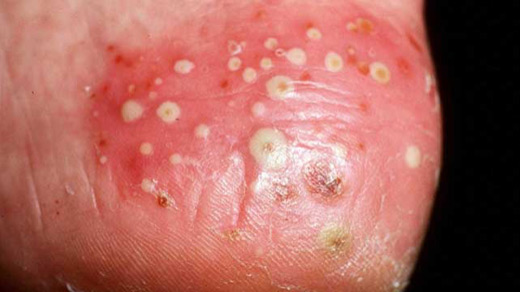 Pustular — Generally seen on the scalp, palms and soles of feet however, it can affect the full body in some patients.
Pustular — Generally seen on the scalp, palms and soles of feet however, it can affect the full body in some patients.
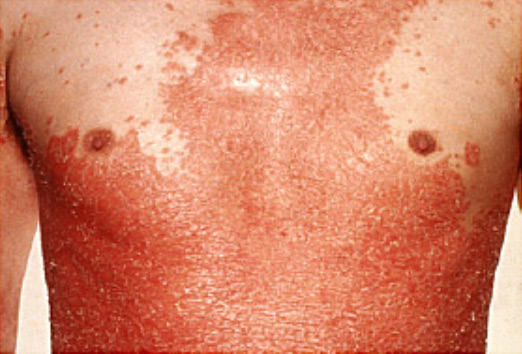 Erythrodermic — Often occurs after a stressful event, such as fever, infection, or other significant illness. The skin appears very red and scaly.
Erythrodermic — Often occurs after a stressful event, such as fever, infection, or other significant illness. The skin appears very red and scaly.
-
How is psoriasis treated?
- Topical therapies — First line treatment for Psoriasis is topical steroids. Psoriasis is an inflammatory skin condition and these topical anti-inflammatories can dramatically improve Psoriasis for most patients. There are many different strengths of steroids that are appropriate for different areas of the body. An adjunct therapy to topical steroids is topical Calcipotriene. It is a form of synthetic vitamin D3 that is formulated to slow skin cell growth, flatten lesions and remove scale. These and gentle but often heavy moisturizers when used appropriately can provide much needed relief for Psoriasis patients.
- Oral therapies — Oral medications can be prescribed to treat Psoriasis. These require regular monitoring through blood work and sometimes, a liver biopsy. Since the drugs used cause severe birth defects, they aren’t prescribed to pregnant women.
- Biological injectable — Some biologicals can be self-administered, while others must be given by a physician or medical staff. They often require yearly monitoring and there are several options available to include but not limited to Stelara, Humira, Enbrel, Taltz and Cosentyx.
